Apple is continuing to look into the possibility of creating an iPhone or iPad with flexible displays, including one concept where the entire display panel and the screen could be folded in multiple different ways depending on the user's wishes, without shattering or breaking.
Published by the U.S. Patent and Trademark Office on Thursday, the patent application for a "Foldable cover and display for an electronic device" suggests ways a screen can be folded, rather than how it could be applied in the form of a mobile device. The concept could still be used with smartphones and tablets, along with hinged mechanisms, but the application goes a little bit further than that.
The description basically details the use of a display layer and a cover layer, and depending on the variation, a translucent substrate, and filler material.
In its basic form, consisting of the cover and the display layers, there is defined foldable region that is denoted by the cover. The foldable regions could be created to endure compressive stress while folded, while others could have the same stress when unfolded, along with compressive stress points in other configurations. Stress can be felt both on the inside and outside of the fold, in different ways.
According to the filing, this could result in a thin display being folded in multiple different ways, such as folding in half to close like a book, or a zig-zag fold like a brochure to show only a third of the display while hiding the remainder, or even to roll the display on itself.
In order to cope with the compressive stress, the layers would be treated by having material removed from sections in grooves, replaced instead with transparent filler material to keep the surface flat. When compressed or stretched with the bend, the display will more easily flex at the thinner sections, while the compressive material supports the thin display section.
For the cover, there is less of a need for filler material, but it can both be affected by folding stress, as well as dictating where the folds can be. In one example, the cover can be made up of multiple panels that drift apart during a fold, and as a byproduct of making it easier to fold at those points compared to more solid areas, can help guide folds to take place at the manufacturer's ideal positions.
Apple has explored the foldable display concept for quite some time, and has suggested the use of flexible elements to combat stress in a display in another filing from July.
One filing from October 2017 appeared at the same time as a rumor claiming Apple was collaborating with LG to produce a flexible OLED iPhone by 2020. Another related patent granted in November 2016 suggested the use of a hinge and a metal-backed flexible OLED panel to produce a foldable smartphone that could clip onto clothing for storage when not in use.
Apple has also invested heavily in MicroLED, a display panel technology using tiny LEDs on a sheet, which has the potential to be used in flexible display situations.
While Apple regularly files patent applications with the USPTO, the publication of an application or the granting of a patent is not a confirmation that it will appear in future Apple products. That being said, the number of patent and application reports in the field and the exploration of the concept by Apple's competitors suggests Apple may be planning to produce such a device at some point in the future.
 Malcolm Owen
Malcolm Owen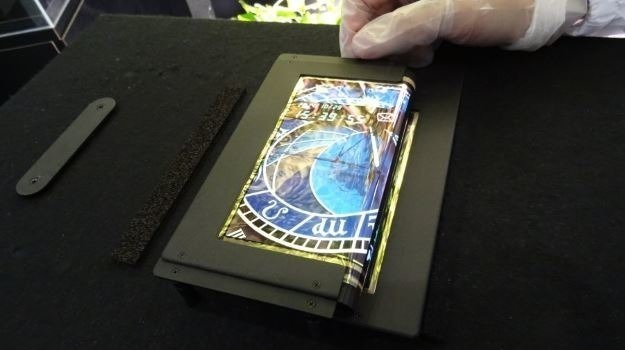
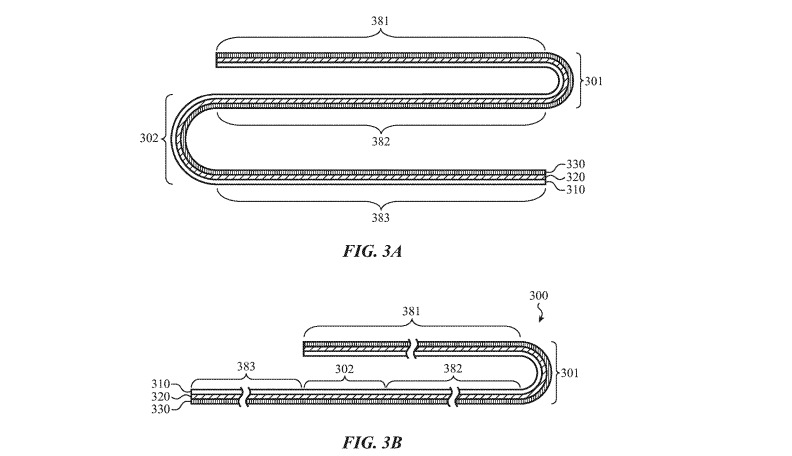
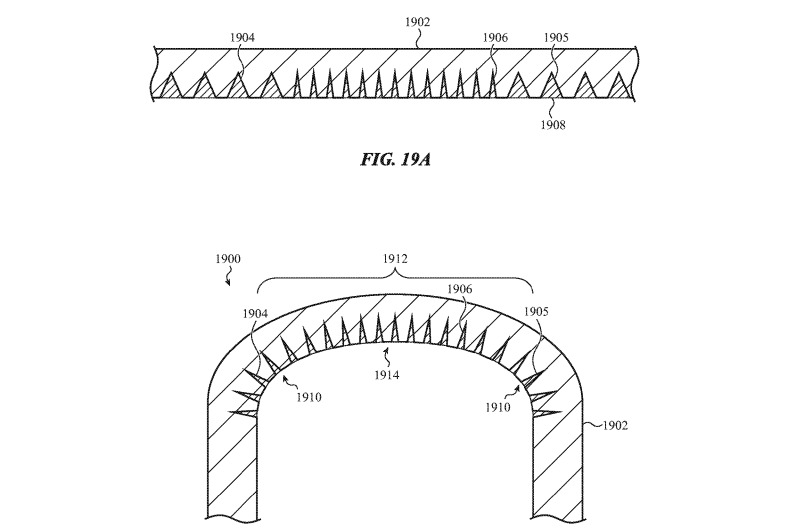
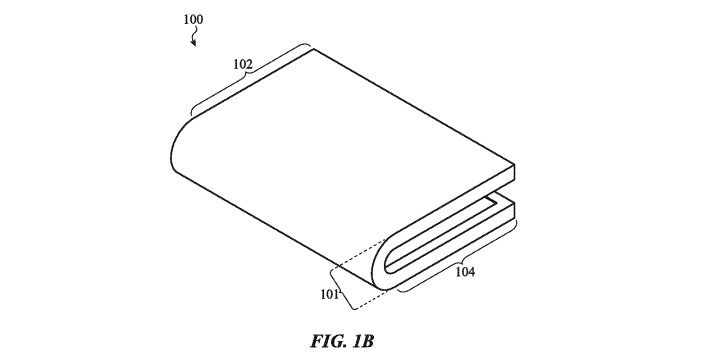

-m.jpg)





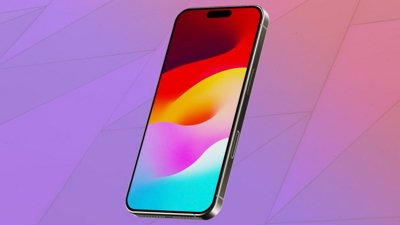
 William Gallagher
William Gallagher
 Andrew O'Hara
Andrew O'Hara
 Wesley Hilliard
Wesley Hilliard


 Marko Zivkovic
Marko Zivkovic

 Chip Loder
Chip Loder




-m.jpg)




3 Comments
This flexible display will mean Apple has lost its edge.
Samsung keeps eye on US Patents office to search what Apple and others filing and than implement that bit differently in product.